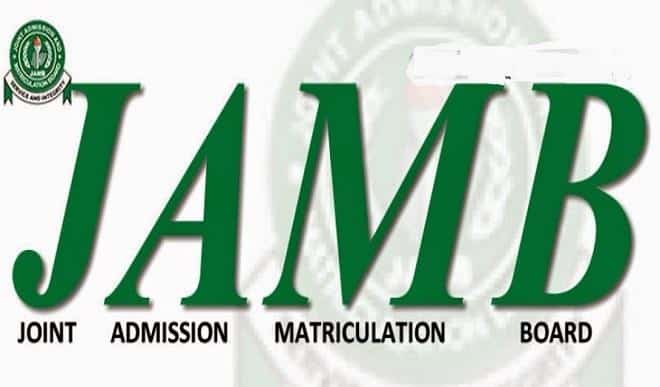JAMB Government Past Questions and Answers PDF, get all the JAMB Government Past Questions and Answers below.
JAMB
Newsone reports that the Joint Admissions and Matriculations Board (JAMB) is a Nigerian tertiary admissions examination board that conducts exams for students. The board is also in charge of administering exams in Nigerian public and private monotechnics, polytechnics, and colleges of education. Students planning to appear for JAMB exams will need to prepare well for the exam and will need JAMB Government Past Questions And Answers PDF, which will help in the same. This article has will help students download JAMB Government Past Questions And Answers PDF as we have here JAMB Government Past Questions And Answers PDF
JAMB Government Past Questions And Answers PDF
Students who are preparing for the JAMB Government exam should prepare well for the exam and the JAMB Government Past Questions And Answers will enable them to give their best for the exams. Given below are the major JAMB Government Past Questions And Answers from previous years. To enable the students to download JAMB Government Past Questions And Answers PDF we have also provided the JAMB Government Past Questions And Answers PDF in the coming section.
JAMB Government Past Questions And Answers
JAMB Government Past Questions And Answers has been highly sought after especially in the JAMB Government Past Questions And Answers PDF format.
1. A constitution is a legal document _________
A drawn up by lawyers
B enacted by military decrees
C forming the basis upon which a government rules the country
D only likely to succeed in countries where there is union government
Answer – C
2. A government in which control of ultimate power is by a few who rule in their selfish interest is classified as _________
A an oligarchy
B a dictatorship
C an aristocracy
D a monarchy
Answer – A
3. The judicial organ of government is the body which _________
A implements the law
B makes the law
C punishes lawbreakers
D interprets the law
Answer – D
4. Which of the following was not established by the 1979 Nigerian constitution ?
A Police Service Commission
B National Universities Commission
C Federal Electoral Commission
D National Population Commission
Answer – B
5. Rates are generally collected in Nigeria by ________
A the State Ministry of Finance
B the Department of inland Revenue
C the Emirate of Traditional Council
D the Local Government Council
Answer – D
6. In a democracy, sovereignty is in _________
A the community
B public officials
C judges
D the Head of State
Answer – A
7. Which of the following is a good example of a confederal state?
A Nigeria
B ECOWAS
C Switzerland
D USA
Answer – B
8. A bill that applies to the whole population and is intended to promote the general welfare is called _________
A a private bill
B a decree
C an appropriate bill
D a public bill
Answer – D
9. Fascism developed in________
A France
B Germany
C Italy
D China
Answer – C
10. The theory of separation of powers was first time clearly formulated by __________
A Jean Bodin
B Jean Austin
C Baron de Montesquieu
D Lord Bryce
Answer – C
11. In a democratic system _______
A Majority Vote
B Legal Sovereignty shouldn’t be unquestionable
C Electoral college is always necessary
D Minority vote but majority rule
Answer – B
12. That type of sovereignty that thrives on legitimacy is__________
A external sovereignty
B vested on any form of government
C legal sovereignty
D within the people’s mandate
Answer – D
13. The right of a citizen to seek redress means the right to________
A fair hearing
B free access to legal materials
C seek an appeal under another judgement
D exercise his political liberty
Answer – C
14. An order compelling a lower court or public corporation to perform in accordance with legitimacy is called_________
A the writ of mandamus
B the great writ
C the writ of ombudsman
D none of the above
Answer – A
15. A form of government which has its slogan to be ‘ruling of the best’ is__________
A democracy
B aristocracy
C timocracy
D plutocracy
Answer – B
16. Deconcentration of power means the_______
A sharing of powers among tiers of government
B creation of semi autonomous units to govern other parts of a state
C process of setting strategies or policies for the subsidiary territories in the state by putting recognized personnel in place
D act of delegating powers and authority to component units that exist in a state
Answer – C
17. The concept of the independence of the judiciary means that________
A The judiciary must not attempt to meddle into legislative and executive affairs
B The powers of the courts can not be subjected of executive re-assessment
C The sanctity of the office of the Judges and Justices must be preserved without prejudice
D All means of legislative or executive influence on judicial decision making must be disabled
Answer – D
18. The political party serves as________
A A platform upon which the rights and liberties of the people can be attained
B The group aggregating the interest of all in the state
C A platform for rebelling against military rule
D A platform for interest representation
Answer – A
19. A party can be said to have national outlook if_______
A it is ethnic based but has branches all over the state
B its membership cut across ethnic boundaries
C it is registered by the electoral commission as a national party
D it is headed by individuals who are famous within and without the country
Answer – B
20. Argumentation, negotiation and deliberation on the subject matter of a bill begins at the_______
A third stage
B first reading
C committee stage
D second reading
Answer – D
21. The primary function of the judiciary is to ______
A interpret laws
B make laws
C regulate behaviour
D execute laws
Answer – A
22. A constitution of any country is basically___________
A a mere piece of paper
B a guide to how the country should be governed
C a document stating what the leaders should do
D a document stating how to acquire power
Answer – B
23. The highest decision-making body in Nigeria under the Buhari’s military regime was the ________
A Armed forces ruling council
B Supreme military council
C National council of states
D Federal executive council
Answer – B
24. A system of government in which the central government is supreme over other levels is
A totalitarian
B confederal
C federal
D unitary
Answer – D
25. The main source of local government finance since the 1976 reform has been___________
A local rates
B levies
C revenue from court fines and licences
D the federal government
Answer – D
26. Nigeria is a member of____________
A OPEC, NATO and ECOWAS
B OAU, the UNO and ECOWAS
C ECOWAS, NATO and OAU
D The Commonwealth of Nations, OPEC and the OAS
Answer – B
27. In the old OYO empire, the Ajele
A mobilized the army
B ensured good governance of the district
C was the head of the army
D ensured the safety of the trade routes
Answer – B
28. A bye-law is made by
A parliament
B congress
C an electoral college
D the local government
Answer – D
29. A human community that is usually cohesive and homogeneous is a
A clan
B state
C nation
D kingship
Answer – C
30. A human community that is usually cohesive and homogeneous is a
A clan
B state
C nation
D kingship
Answer – C
JAMB Government Past Questions And Answers PDF Download
Those students who desire to get the JAMB Government Past Questions And Answers PDF Download version we have given the same below. The JAMB Government Past Questions And Answers PDF that we have given is for practice only.
JAMB Government Past Questions And Answers PDF Download – Click Here
Disclaimer: The above information is for general informational purposes only. All information on the Site is provided in good faith, however we make no representation or warranty of any kind, express or implied, regarding the accuracy, adequacy, validity, reliability, availability or completeness of any information on the Site.
JAMB Government Past Questions And Answers PDF – FAQs
1. Where can I get JAMB Government Past Questions And Answers PDF?
You can get JAMB Government Past Questions And Answers PDF here
2. What is JAMB?
The Joint Admissions and Matriculations Board (JAMB) is a Nigerian tertiary admissions examination board.
3. What does JAMB do?
The board administers the UTME, or Unified Tertiary Matriculation Examination, to prospective undergraduate students at Nigerian universities.
4. When was JAMB established?
JAMB was established in 1978
5. Who is the current registrar of JAMB?
The current registrar of Jamb is Professor Ishaq Oloyede who was appointed by President Muhammadu Buhari in August 2016.






